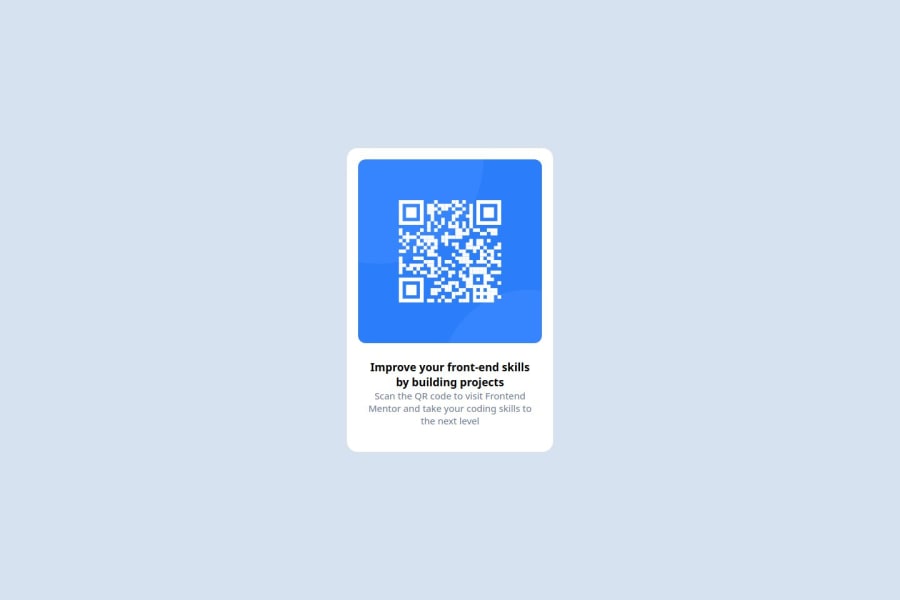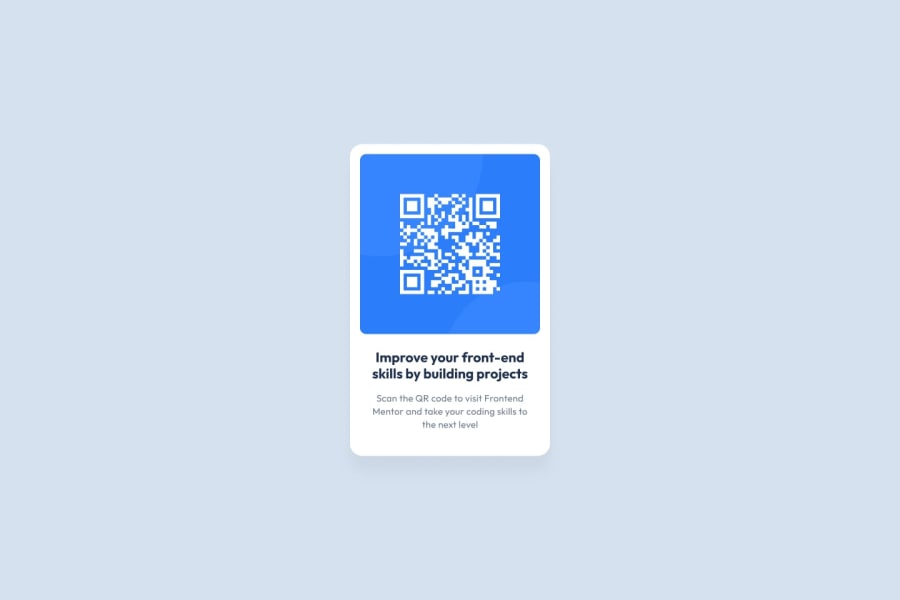
Design comparison
SolutionDesign
Solution retrospective
What are you most proud of, and what would you do differently next time?
I'm able to create QR code. Hoping to learn more.
What challenges did you encounter, and how did you overcome them?Well! the resources provided were good and helped me.
What specific areas of your project would you like help with?In my FrontEnd development this learning will help alot.
Community feedback
Please log in to post a comment
Log in with GitHubJoin our Discord community
Join thousands of Frontend Mentor community members taking the challenges, sharing resources, helping each other, and chatting about all things front-end!
Join our Discord
